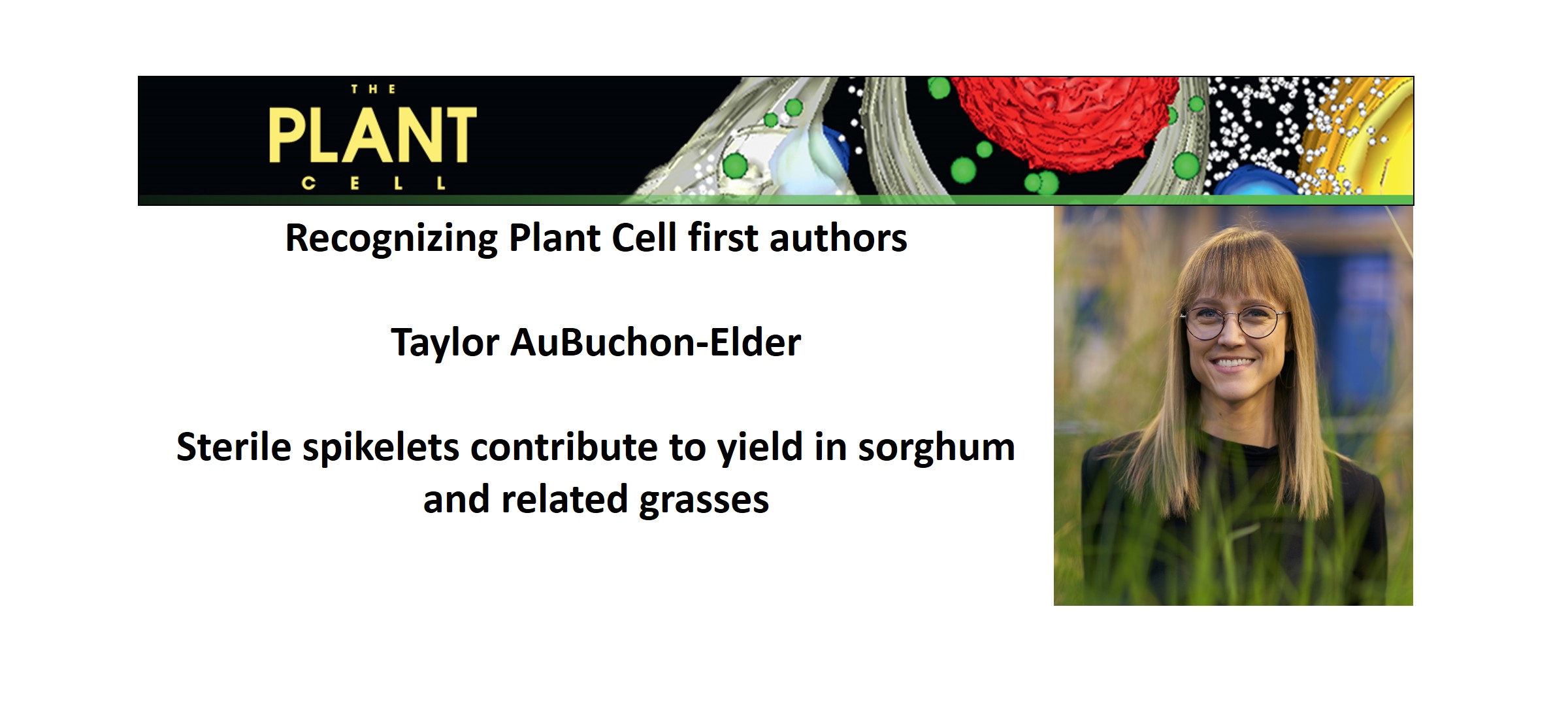Recognizing Plant Cell authors: Taylor AuBuchon-Elder
 Taylor AuBuchon-Elder, co-first author of Sterile spikelets contribute to yield in sorghum and related grasses
Taylor AuBuchon-Elder, co-first author of Sterile spikelets contribute to yield in sorghum and related grasses
Current Position: Senior lab technician
Education: B.A. Biological Sciences Webster University, St. Louis, Missouri
Non-scientific interests: cooking, gardening, traveling, activism, and politics
Brief Bio: When I began my undergraduate education I originally planned on focusing on studio art, but I ended up starting a full biological sciences course load, and the rest is history. While I earned my biology degree, I was also fortunate enough to minor in environmental studies and sustainability, which broadened my interests and discipline, and has allowed me to apply a more interdisciplinary approach to my research.
I’m passionate about plant biodiversity, preserving natural resources, and encouraging good stewardship of our environment. My work in the Kellogg Lab at the Donald Danforth Plant Science Center lets me study the genetic basis of wild grass diversity and how it applies to improving sustainability of cereal agriculture. Sometimes people ask me why I would bother working with grass; but I often remind them that grasses like corn, rice, and wheat have been supporting human civilizations for millennia!
Today I am leading the germplasm acquisition and maintenance of over 1,000 species of wild grass from all around the world because of their special abilities in heat and drought tolerance and their evolutionary relationships to staple crops. This work involves extensive planning, travel, navigating geospatial data, resolving taxonomic issues, and managing hundreds of very robust plants from the wild! We aim to understand the mechanisms responsible for their adaptations to abiotic stress, and provide that information to improve crop efficiency in a changing climate.
I’m currently weighing my options and goals for graduate school in this uncertain time; but I look forward to continuing research on wild plants and the answers they can provide to us for working towards a more sustainable future.



